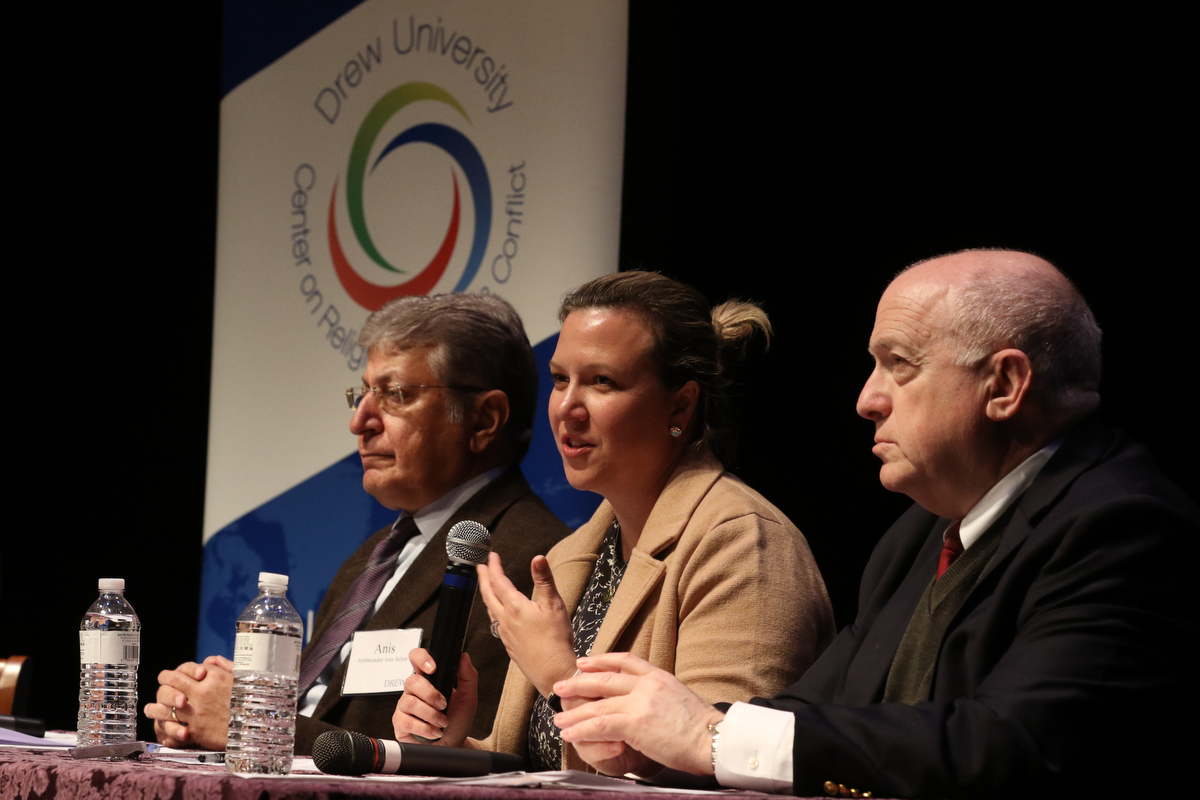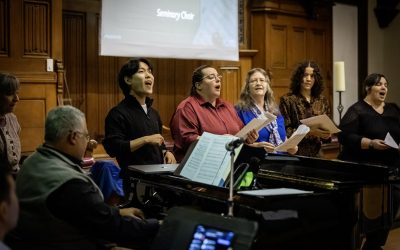What’s the legacy of the 1978 treaty?
Enlarge

April 2019 – Experts examined the legacy of the Camp David Accords between Israel and Egypt during a panel discussion at Drew University.
The Shirley Sugerman Interfaith Forum was organized by Drew’s Center on Religion, Culture and Conflict and moderated by Center Director Jonathan Golden.
Panelists characterized the 1978 Israeli-Egyptian treaty as a strategic decision by Egyptian President Anwar Sadat to reorient Egyptian foreign policy toward the West. “Sadat was the big driving force in the process toward peace,” added M. Anis Salem, coordinator of the U.N. Working Group at the Egyptian Council for Foreign Affairs.
Daniel Kurtzer, a former U.S. Ambassador to Israel and Egypt and the S. Daniel Abraham Professor of Middle East Policy Studies at Princeton University’s Woodrow Wilson School of Public and International Affairs, likened the agreement to the end of the Cold War. “It had that dramatic of an impact,” he said.
What’s more, the accords “changed the narrative of peace,” said Sarah Yerkes, a fellow in the Middle East Program at the Carnegie Endowment for International Peace. Nevertheless, reaction from Israelis and Egyptians was mixed. As Yerkes put it, “The public was not quite ready for peace.”
Enlarge

When Golden asked about the lasting effects of the accords, Kurtzer emphasized that there hasn’t been an interstate war in the Arab States since 1973. Furthermore, the Egyptian Israeli treaty “opened a pathway for the Israeli Palestinian peace process,” he said.
Yerkes also noted that Egypt remains a major ally of the U.S., which brokered the treaty under then President Jimmy Carter.
More broadly, Kurtzer had some advice for students and colleges: during an active peace negotiation, you can positively impact your campus by fostering an open dialogue among different groups. “Don’t stifle the debate. Rather, channel the debate,” he said.
The Sugerman Interfaith Forum provides a venue for interdisciplinary exchanges among scholars, teachers, religious leaders and members of the community who are interested in exploring issues related to interfaith understanding, the diversity of religiously-based ethical perspectives and the political, social and cultural conflicts caused by the clash of religious traditions.
Established in 1991, the forum is endowed by Dr. Shirley Sugerman G’70—a Drew trustee emerita—and other donors.


